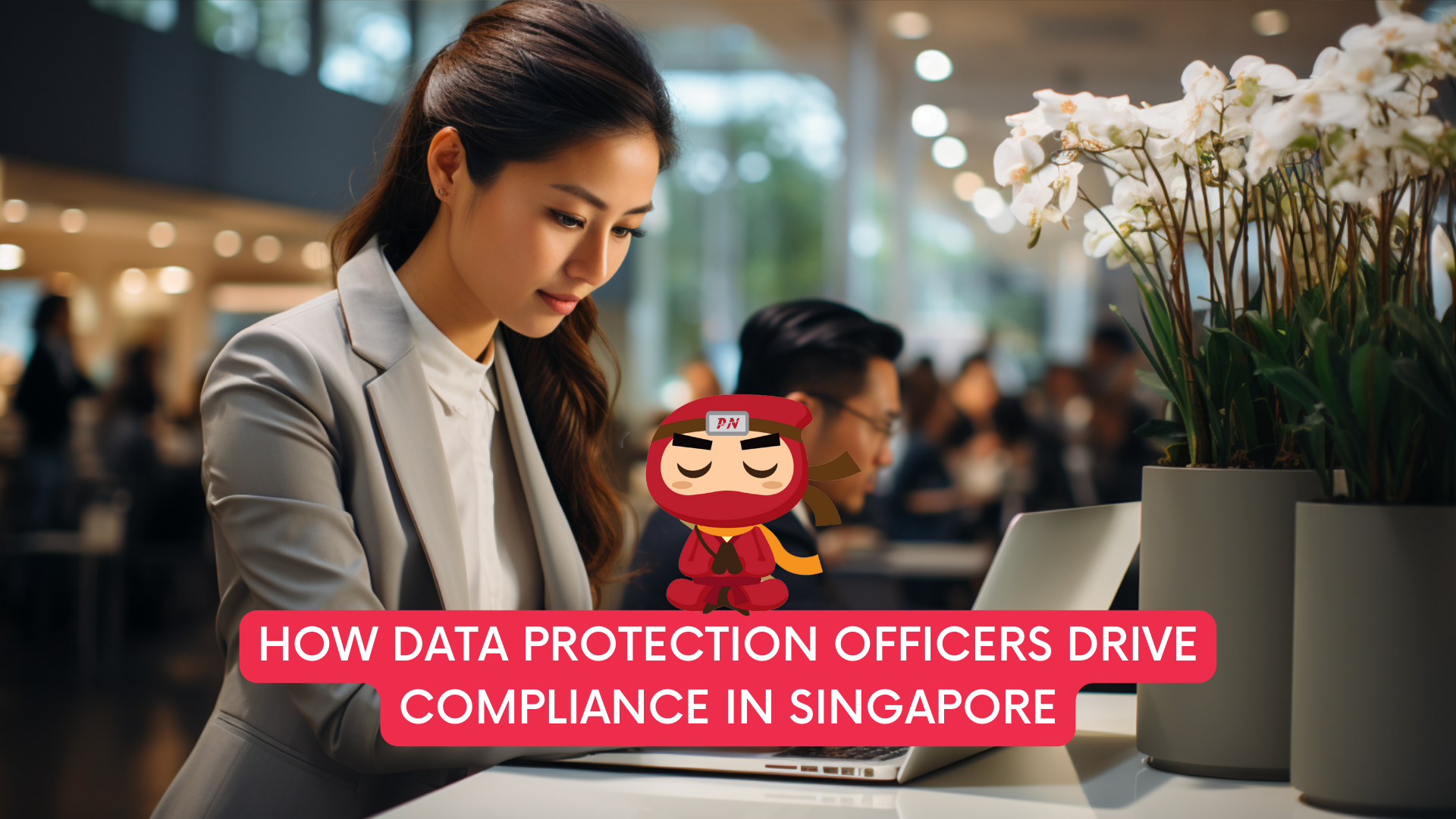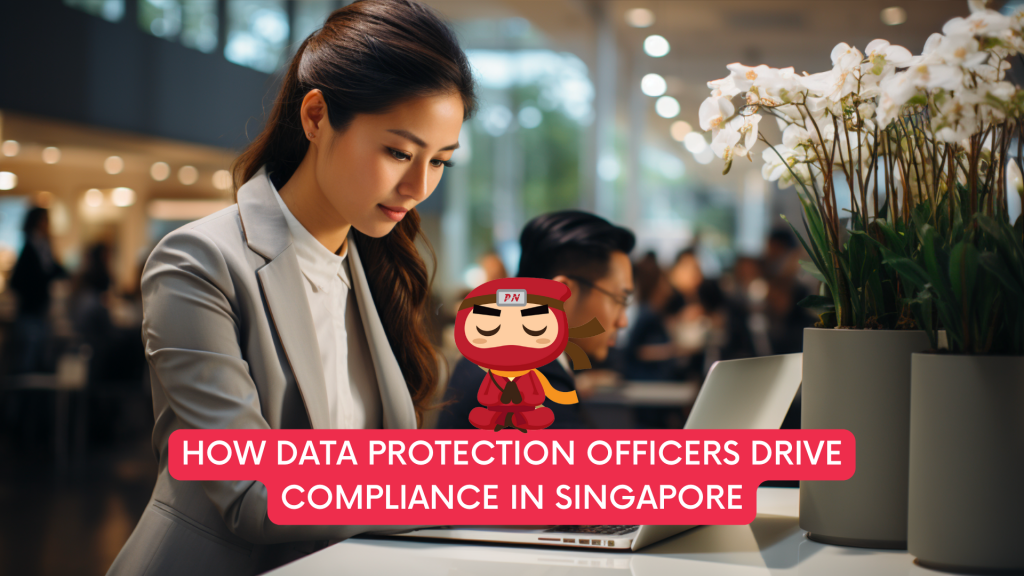KEEP IN TOUCH
Subscribe to our mailing list to get free tips on Data Protection and Cybersecurity updates weekly!







In the rapidly evolving landscape of data protection and privacy, Singapore stands out as a nation committed to ensuring the security and integrity of personal and sensitive information.
A pivotal figure in this endeavor is the Data Protection Officer (DPO), a role that plays a crucial part in steering organizations towards compliance with Singapore’s data protection regulations.
In this article, we will demystify the role of DPOs and explore how they drive compliance in the Lion City.
Data Protection Officers, or DPOs, serve as the primary point of contact for data protection matters within organizations operating in Singapore. Their responsibilities encompass a wide range of crucial tasks:
1. Advisory Role: DPOs provide guidance and advice on data protection policies, practices, and compliance requirements to the organization’s leadership and employees.
2. Monitoring Compliance: They monitor the organization’s data protection activities to ensure adherence to Singapore’s data protection laws, such as the Personal Data Protection Act (PDPA).
3. Data Privacy Impact Assessments (DPIAs): DPOs conduct DPIAs to identify and mitigate potential privacy risks associated with data processing activities.
4. Data Breach Management: In the event of a data breach, DPOs play a central role in reporting and managing the incident, as required by the PDPA.
5. Liaison with Authorities: DPOs act as liaisons between the organization and Singapore’s Personal Data Protection Commission (PDPC), ensuring compliance with regulatory requirements.

One of the primary ways DPOs contribute to compliance is by leveraging their expertise in data protection. This expertise encompasses a deep understanding of Singapore’s data protection laws, as well as international data protection standards.
DPOs are well-versed in the intricacies of data handling, storage, and processing, and they ensure that organizations align their practices with regulatory expectations.
DPOs are instrumental in fostering a culture of data privacy within organizations. They educate employees about data protection policies, the importance of compliance, and the potential consequences of non-compliance.
By conducting training sessions and awareness campaigns, DPOs empower employees to become guardians of data privacy.
Risk mitigation is a core function of DPOs. They proactively identify and assess privacy risks associated with data processing activities and work with relevant departments to implement measures that mitigate these risks.
This proactive approach not only safeguards sensitive information but also helps organizations avoid potential fines and reputational damage.
In the unfortunate event of a data breach, DPOs play a critical role in managing the incident efficiently and in accordance with legal requirements. They oversee the investigation, containment, notification, and reporting processes.
Timely and transparent data breach management not only fulfills regulatory obligations but also helps maintain trust with customers and stakeholders.
DPOs do not work in isolation. They collaborate with various departments, including legal, IT, and compliance, to ensure that data protection measures are seamlessly integrated into an organization’s operations.
This collaborative approach ensures that data protection is not viewed as a standalone function but as an integral part of the business.
Data Protection Officers are unsung heroes in the realm of data protection and privacy. In Singapore, where data protection regulations are stringent and evolving, DPOs play a pivotal role in steering organizations towards compliance.
Their expertise, commitment to privacy, and proactive approach to risk management contribute to the creation of a data protection culture within organizations. As data continues to be a valuable asset, DPOs will remain essential in safeguarding individuals’ privacy and ensuring organizations uphold the highest standards of data protection in the Lion City.

Your appointed DPO can work with you on your PDPA compliance, ensuring that there will be policies in place to make sure that the handling of personal data is PDPA compliant.
A Data Protection Officer (DPO) oversees data protection responsibilities and ensures that organisations comply with the Personal Data Protection Act (PDPA). Furthermore, every Organization’s DPO should be able to curb any instances of PDPA noncompliance as it is the officer responsible for maintaining the positive posture of an organisation’s cybersecurity.
DPOs complement organisations’ efforts to ensure that the organisation’s methods of collecting personal data comply with the PDPA. It also ensures that policies are set in place to make sure that there will be no instances of data breaches in the future.
Don’t wait any longer to ensure your organisation is PDPA compliant. Take our free 3-minute PDPA Compliance Self-audit checklist now, the same “secret weapon” used by our clients to keep them on track. Upon completion, we will send you the results so you can take the necessary action to protect your customers’ data. Complete the free assessment checklist today and take the first step towards protecting your customers’ personal data.